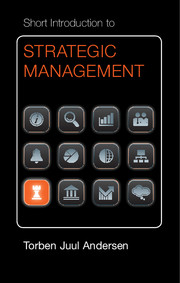2 - Strategy formulation
Published online by Cambridge University Press: 05 July 2013
Summary
Learning points
Outline the core elements of a mission statement
Discuss how to assess the environmental dynamics
Deploy the conventional strategy-formulation process
Extend the generic strategic management model
Prepare the strategy-execution plans
The previous chapter explained the historical roots of the strategy concept and gave the background for the generic strategic management model that continues to permeate the field. One of the essential premises of this strategy model is that management is normative and so managers will try to engage in rational decision making. Accordingly, the formal strategy-making process first engages in thorough analyses of business conditions to identify a favorable strategic position to aim for and subsequently develops a plan intended to move the organization toward that position. This set of activities is often called strategy formulation. For this purpose we use an analytical approach to uncover alternative strategic options available to the firm as the basis for choosing a suitable path forward. Once a decision is made about a desired strategic position, management will plan the actions necessary to achieve the desired strategic outcomes. Once such a plan of action has been deliberated, the organization supposedly takes action in accordance with the plan to realize the specified aims. This phase is often referred to as strategy implementation. The underlying assumption here is that we can make a clear distinction between the advance thinking that goes into the forward-looking planning activities and the subsequent execution of actions as stipulated in the plan. We will address and challenge this assumption in Chapter 3. However, the current chapter will confine discussions around the so-called formulation phase, where various analytical techniques can help assess the business environment that circumscribes the firm.
- Type
- Chapter
- Information
- Short Introduction to Strategic Management , pp. 29 - 90Publisher: Cambridge University PressPrint publication year: 2013



